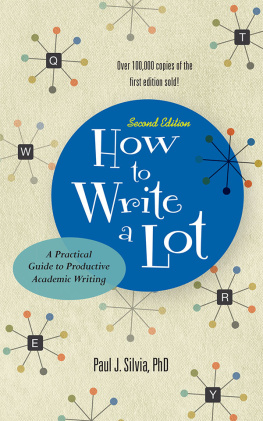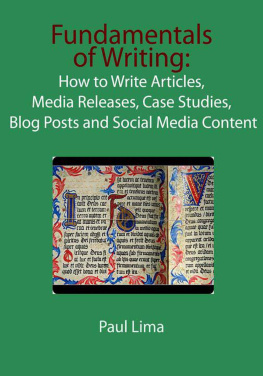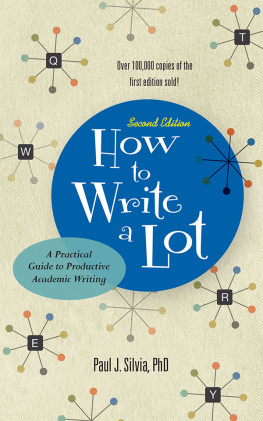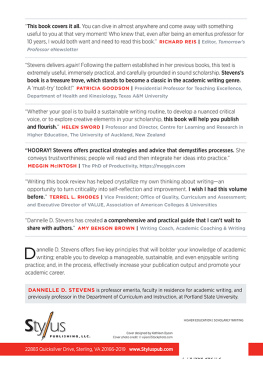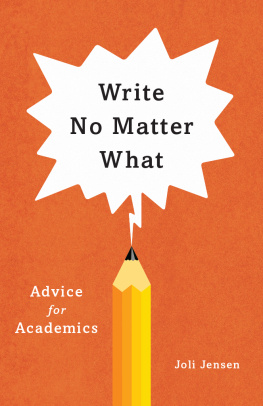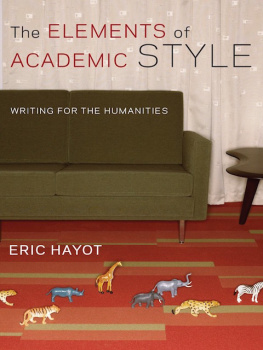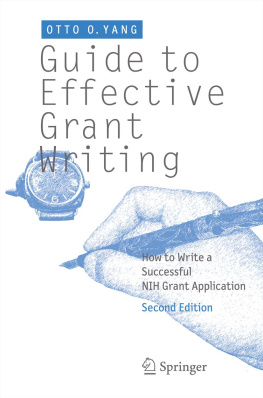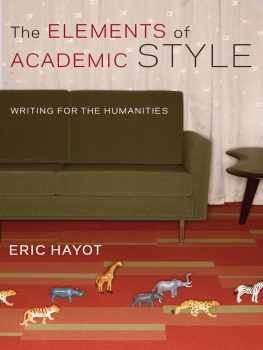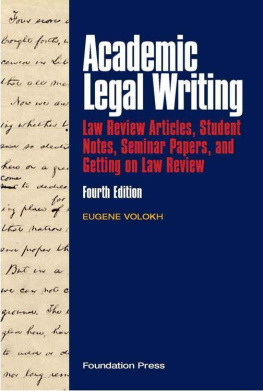Contents
Introduction
How to Write a Lot is about learning how to write up the ideas youre passionate about while still having a life. It isnt about cranking out fluff, dicing big projects into least-publishable-units, or carving notches into your publication bedpost. Most academics would like to write more than they do now, but theyd rather do it in a low-drama way that doesnt cannibalize their weekends, spring breaks, and family time. This book is for them.
I take a practical, behavior-oriented approach to writing. We wont talk about your feelings, pry into your insecurities, consider your writerly identities or philosophies, or problematize your discourse. We wont talk about developing new skills eitheryou already have the skills needed to write productively, although youll improve with practice. And we wont talk about unleashing your inner anything: put your inner writer back on its leash and give it a chew toy.
Instead, well talk about your outer writer. Writing productively is about actions that you arent doing but could easily do: making a writing schedule, setting clear goals, keeping track of your work, rewarding yourself, and building good habits. Productive writers dont have special gifts or special traitsthey just write more regularly and use their writing time more efficiently. Changing your behavior wont necessarily make writing fun, but it will make it faster and less oppressive.
WRITING IS HARD
Research is good, clean, nerdy fun. Whether your research involves scanning brains, crunching numbers, translating letters, or visiting archives that just happen to be located in glamorous European cities, youre having fun. But writing about research isnt fun; writing is frustrating, complicated, and un-fun. If you find that writing is hard, wrote William Zinsser (2006), its because it is hard (p. 9). How the mind composes text is an eerie and awe-inspiring mystery. We dont know how the brain transforms a squishy mass of images and feelings and symbols and memories into sentences, but we know that it hurts if you do it too often.
Because thinking of ideas is easier and faster than writing about those ideas, most professors have writing backlogs. Passive-aggressive grad students can always score a hit by innocently asking their advisers, have any interesting projects you havent gotten around to writing up yet? The typical writing backlog will range in size from startling to depressing to monstrous. Academics intend to publish those projects someday, but some decade is more realistic. Because they struggle with writing, professors yearn for 3-day weekends, spring breaks, vacations, and the summer months. But on the Tuesday after a 3-day weekend, people groan and grumble about how little they wrote. In a big department, the first week after summer break is a din of lamentation and self-reproach. This sad cycle of yearning and mourning begins anew as people search for the next big block of time. And people usually find these big blocks on the weekends, evenings, and vacations. Writing thus usurps time that should be spent on important activities, like spending time with friends and family, making lentil soup, or knitting the dog a Santa hat.
And as luck would have it, the standards for writing are higher than ever. Our bosses, who hire and promote us, expect more publications than before. All institutions, from grant-addicted research universities to small liberal arts colleges, want to raise their scholarly profiles. More scholars are sending more papers to more journals. More scientists are submitting more grant proposals that compete for a shrinking pile of money. More first-book writers are sending proposals to a smaller group of publishers willing to publish first books. And more scholars have been hired into precarious nontenure-track positions that, by swamping them with teaching and anxiety over what the future holds, make writing even harder. Its a tough time to start a career in academics.
THE WAY WE LEARN NOW
Writing is a skill, not a gift. No one is born a great writer, let alone a great academic writer. No kindergarten teacher has ever remarked, I liked your childs essay, but if Im honest, I liked her footnotes even better. It takes humans an incredibly long time to learn to write as badly as most of us do. In graduate education, though, we spend little time training people in the craft of academic writing, compared with other professional skills. Teaching is hard and important, so graduate students take courses in teaching, apprentice as teaching assistants, and eventually step into teaching their own courses. Research methods are hard, so grad students study it in the classroom as well as in the field, the laboratory, or the glamorous European archive.
But writingwe dont usually have grad classes for that. In the humanities, you often need to publish a book to get tenure, so you would think that one of the many tenured, book-writing professors in grad school would have offered a class on how to do thisperhaps called How to Do the One Thing That Determines Whether You Get Fired. In the sciences, you often need to juggle a lot of projects, typically grant proposals and a heap of short articles. But grant and article writing are rarely taught in our classes, so most of us would have benefited from a class called How to Spend Years Writing Unfunded Grant Proposals Without Sinking Into a Morass of Despair.
In short, few departments offer the same formal training for writing that they do for teaching and research methods. Instead, we teach grad students how to write via an apprentice approach. This sounds good in theoryone envisions impressionable young scholars soaking up the hard-earned wisdom of their eldersbut in practice, it looks like a frazzled professor saying, Oh, that deadline isnt firm; no one turns in their chapters on time. If we professors judged ourselves with cold, sober honesty, would we conclude that were good role models? Do we complain about not finding time to write? Do we binge write when deadlines loom? Do we meet those deadlines? When our grad students want feedback on their writing, is our turn-around measured in days, weeks, or harvest seasons?
So this is how the bad habits get passed from generation to generation, as each wave of students gets poor training in writing and then models those bad habits for the next wave. And as academias training languishes, its expectations for grants, books, and articles ratchet up.
THIS BOOKS APPROACH
Academic writing can become a sordid drama. We feel oppressed by half-done manuscripts, complain about cruel rejections from journals, scramble to submit grant proposals the day before the deadlines, fantasize about the halcyon summer days of writing, and curse the foul start of the semester for stunting our productivity. Academic life is dramatic enough alreadywe dont need this kind of drama. All these practices are bad. Academic writing should be more routine, boring, and mundane. How to Write a Lot views writing as a set of concrete behaviors, such as (a) scheduling time to write; (b) sitting on a chair, bench, stool, ottoman, toilet, or patch of grass during the scheduled time; and (c) slapping your flippers against the keyboard to generate paragraphs. Let everyone else procrastinate, daydream, and complainspend your time sitting down and flapping your flippers.
While you read this book, remember that writing isnt a race or a game. Write as much or as little as you want. Dont feel that you ought to write more than you want to write, and dont publish fluffy nonsense just for the sake of publishing. Dont mistake people with a lot of publications for people with a lot of good ideas. Our aim is to write up what were passionate about while still having a life.

